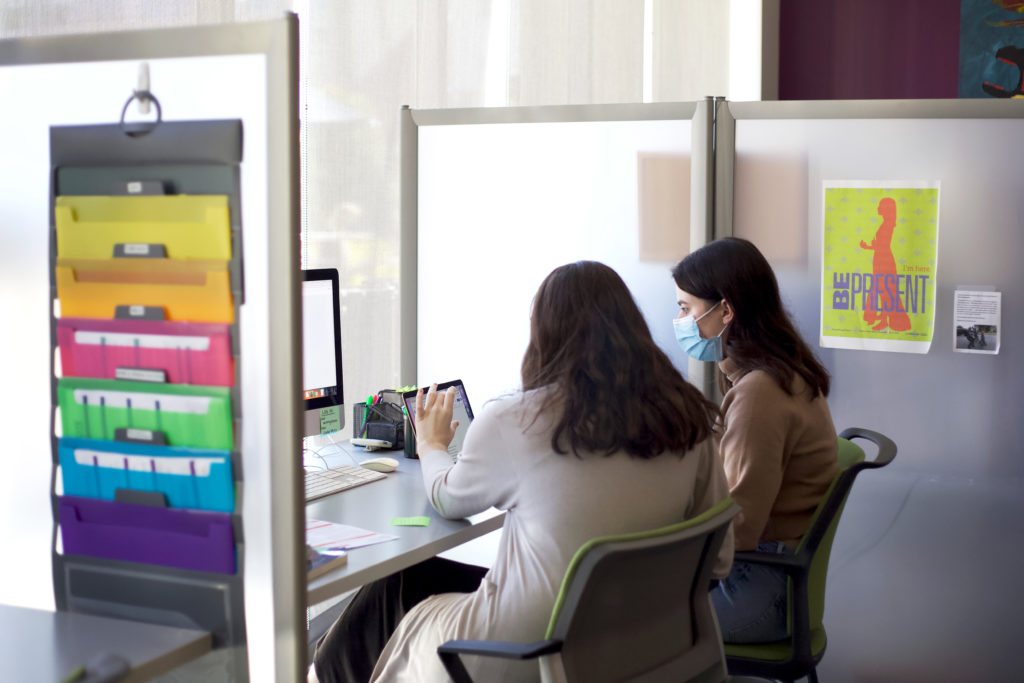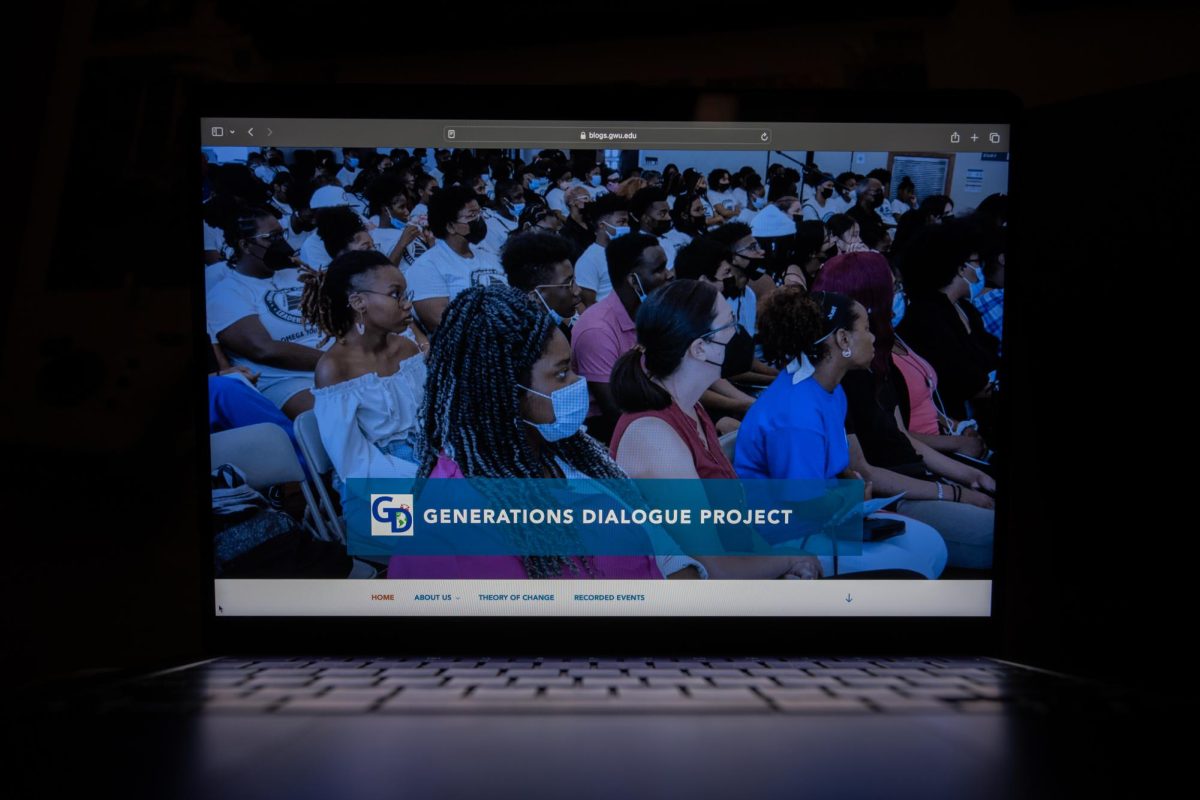The GW Writing Center will continue offering virtual appointments this fall even as it reopens its physical location.
Writing center staff said virtual appointments have increased by more than 20 percent during the first two weeks of fall compared to last year and the center will continue to offer both in-person and virtual services to support students on and off campus. Students and staff working at the center said the continued virtual appointments will provide more flexibility and options for students who may not always have access to in-person services and resources.
Carol Hayes, the director of the writing center and an associate professor of writing, said the number of virtual meetings for the first two weeks of this semester jumped from 271 last fall to 330. She said new students may be visiting the center more because of its visible location on the first floor of Gelman Library, where they can interact with staff to book appointments and use the space’s resources after operating entirely online last year.
“That visibility helps students find out about the [GW Writing Center],” she said in an email. “During last year’s virtual operations, the writing center simply didn’t have that same visibility.”
She said three-fourths of the writing center’s appointment slots are now in person.
“Right now, the virtual appointments are in slightly greater demand, so we may increase those hours in the near future, perhaps to 30 percent of our appointments,” Hayes said.
Hayes added that the center missed opportunities to reach more students through faculty and peer recommendations because of the shift to online operations. She hopes the center’s reopening can garner more recommendations from the informal, impromptu conversations among students now that in-person instruction has resumed, Hayes said.
“During virtual operations, students didn’t encounter the writing center in the ways they would have if they’d been on campus,” she said. “Student-to-student recommendations to try the writing center have traditionally been a vital way for students to find us.”
Hayes said the center, which began experimenting with virtual appointments over Zoom starting in 2015, has delayed the opening of its satellite locations in Eckles and Himmelfarb Health Sciences libraries until next spring because the center is rebuilding its “sense of community” among its student employees this fall. She said they hope to launch a once-a-week satellite center at the Multicultural Student Services Center later this semester.
Hayes said the center downsized from eight to five consulting desks and advised its staff members to sanitize their desks at the beginning and end of each shift to adhere to Centers for Disease Control and Prevention guidelines.
Gordon Mantler, the executive director of the University Writing Program and an associate professor of writing and history, said the center logged 4,820 appointment hours the last academic year, a nearly three percent increase from the 4,682 appointment hours from the previous year. But its use fell from the two years prior to the pandemic, when the center previously logged more than 5,000 appointment hours, he said.
Mantler said while the shift to online operations last spring reduced the number of students who booked appointments, staff at the center implemented programs to motivate students to continue writing. He said the center added Virtual Cafés for different student groups and piloted the Long-Term Project Program last academic year for writing tasks that take weeks to months, which officials plan to move out of the piloting phase this fall.
He said staff has limited physical capacity to 14 people in the center and installed a plexiglass barrier at the front desk as a part of its management of COVID-19 protocols. He said the center’s staff also released a set of community standards during the summer as a part of its response to combating racism, discrimination and microaggressions to make the environment more equitable to students.
“The goal of those ‘community standards’ is to balance students’ rights to receive academic writing support, with the rights of students and consultants to a respectful, equitable environment for learning and working,” Mantler said in an email.
Shree, an undergraduate consultant for the Writing Center who only shared her first name because of the center’s academic confidentiality policies, said she has conducted a combination of in-person and virtual consulting during her first semester as a staff member. She said consultants at the center have been able to create relationships with clients over a screen on Zoom by giving them “personalized” and “tailored” responses to their needs.
“We have a really strong support system for consultants, and we as consultants try to do our best to be that support system for our clients as well,” she said. “The directors have been really instrumental in making sure that we feel the support that we need.”
John Peloquin, a senior majoring in aerospace engineering who visited the center this fall, said the option to receive consulting online or in person provides flexibility and convenience for students who live off campus or are concerned about COVID-19. He said offering more virtual appointments would especially help out commuter and sick students who want to visit and access the center’s resources but can’t as easily.
“If things were to get worse on campus with the pandemic and positive COVID cases were to go on the rise again soon, virtual would definitely be the more comfortable in my opinion for me,” Peloquin said.







